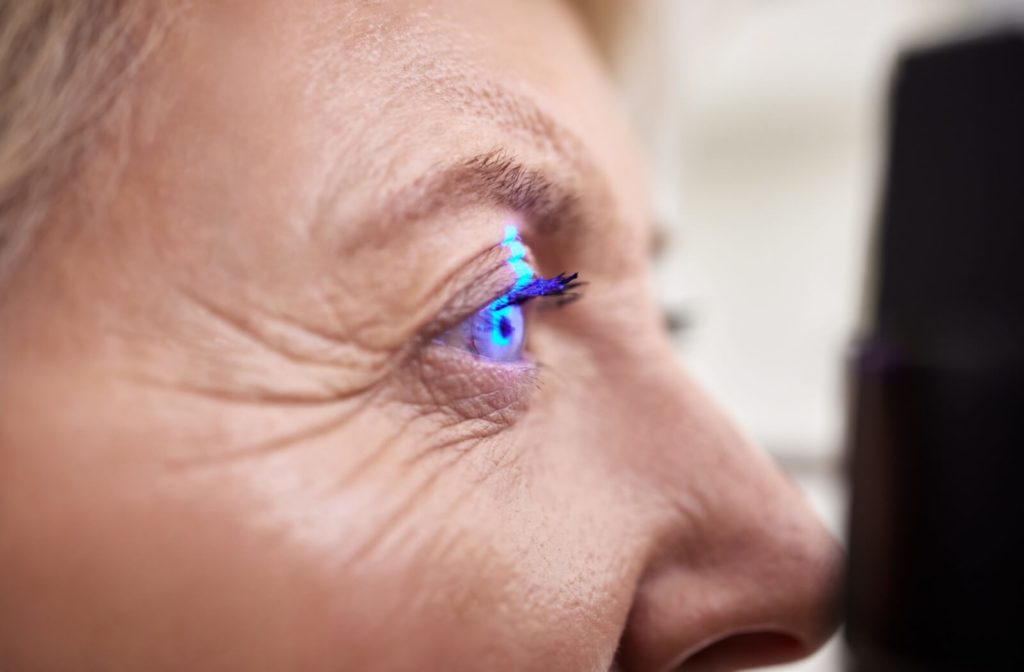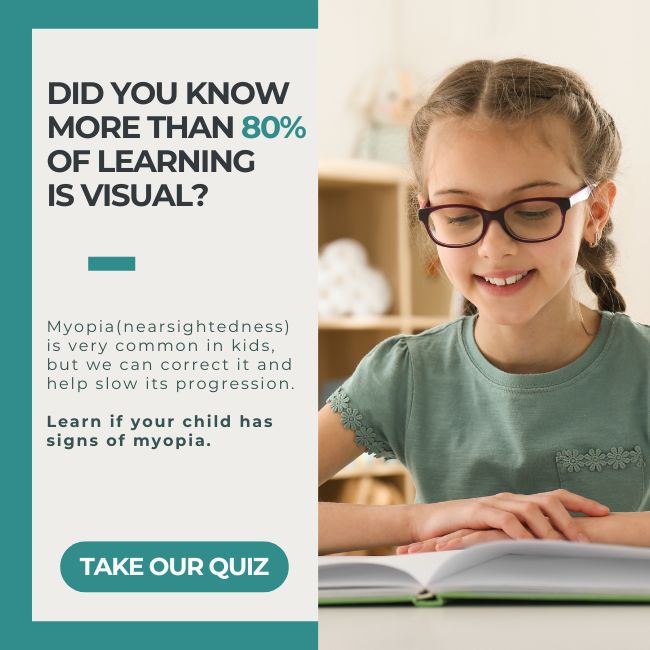Two conditions, macular degeneration and glaucoma, are notable for their ability to cause vision loss, especially among older adults. While macular degeneration and glaucoma are distinct eye diseases, they share common risk factors such as age and genetics. Moreover, having one disease may increase the risk of developing the other.
Understanding these conditions, their differences and risk factors can help manage eye health more effectively. Regular eye exams can help with early detection of eye diseases before they progress and affect vision.
What Is Macular Degeneration?
Macular degeneration, often referred to as age-related macular degeneration (AMD), is a condition that affects the macula, the small central part of the retina (the light-sensitive tissue at the back of the eye). The macula is responsible for sharp, central vision. When it wears down or begins to degenerate, this can lead to vision loss.
Types of macular degeneration include:
- Dry macular degeneration is more common and accounts for about 90% of cases.
- Wet macular degeneration is less common but more severe and involves blood vessels growing underneath the retina.
Symptoms of Macular Degeneration
The symptoms of macular degeneration can vary, but common signs include:
- Blurry or fuzzy vision
- Difficulty recognizing faces
- A dark or empty area in the center of the vision
- Distorted vision, where straight lines appear wavy
Risk Factors for Macular Degeneration
Understanding the risk factors is crucial for early detection and prevention. Some key risk factors for macular degeneration include:
- Age (50 and over)
- A family history of AMD
- Smoking
- Extensive UV light exposure
What Is Glaucoma?
Glaucoma is a group of eye conditions that damage the optic nerve at the back of the eye, which is responsible for sending images from the eye to the brain. This damage results from abnormally high pressure in the eye due to fluid buildup and can lead to vision loss if untreated.
Types of glaucoma include:
- Primary open-angle glaucoma
- Angle-closure glaucoma
- Secondary glaucoma
- Normal-tension glaucoma
Symptoms of Glaucoma
Glaucoma is known for its “silent” progression, meaning symptoms may not be noticeable until significant vision loss has occurred. However, some signs to watch for can include:
- Patchy blind spots in peripheral or central vision
- Tunnel vision in advanced stages
- Eye pain
- Nausea and vomiting (in acute cases)
- Blurred vision
- Light sensitivity
- Headaches
Risk Factors for Glaucoma
Several risk factors can increase the likelihood of developing glaucoma, including:
- Age (40 and over)
- Family history of glaucoma
- Medical conditions such as high blood pressure
- Certain eye-related conditions
Differences Between Macular Degeneration & Glaucoma
While macular degeneration and glaucoma are age-related eye diseases and affect vision, they do so in different ways and have unique characteristics.
Differences in Symptoms
Macular degeneration primarily impacts central vision and can affect your ability to read and recognize faces. In contrast, glaucoma often affects peripheral vision first, which can lead to tunnel vision as the disease progresses.
Differences in Risk Factors
Age is a common risk factor for both conditions, but other factors differ. For instance, smoking is a significant risk factor for macular degeneration but not for glaucoma. Meanwhile, medical conditions like high blood pressure are more commonly linked to glaucoma.
Differences in Treatment
Treatment approaches for macular degeneration and glaucoma are different. Macular degeneration treatment may include eye injections to slow disease progression. Glaucoma treatments often involve medications or surgery to lower eye pressure.
Is Macular Degeneration & Glaucoma Related?
Research on the relationship between macular degeneration and glaucoma is ongoing. Some studies suggest that having one of these conditions might increase the risk of developing the other, possibly due to shared risk factors such as age and genetics. However, more research is needed to understand any direct connections.
Prevention & Management

Preventing and managing macular degeneration and glaucoma involves similar strategies. Here are some practical tips.
Regular Eye Exams
An effective way to prevent vision loss from these conditions is to visit your eye doctor for regular eye exams. Early detection is key to managing and treating both AMD and glaucoma.
Healthy Lifestyle Choices
Adopting a healthy lifestyle can reduce the risk of both conditions. Consider the following:
- Quit smoking: If you smoke, seek help to quit.
- Healthy diet: Eat a diet rich in greens, fish, and fruits.
- Exercise: Regular physical activity can help maintain overall health.
- Manage health conditions: Maintain stable blood pressure.
Follow Treatment Plans
If diagnosed with either condition, adhering to treatment plans is crucial. Treatment might include taking prescribed medications, attending follow-up appointments, and undergoing recommended procedures.
Protect Your Eyes
Wearing sunglasses that block UV rays can protect your eyes from sun damage, which is a contributing factor to macular degeneration.
Safeguard Your Vision
Understanding the differences and relation between macular degeneration and glaucoma can help to manage your eye health. Regular check-ups, lifestyle changes, and adherence to treatment plans are essential in preventing and managing these conditions.
If you have concerns about your vision or notice vision changes, book an appointment with Insight Eyecare to safeguard your vision and maintain your quality of life.







